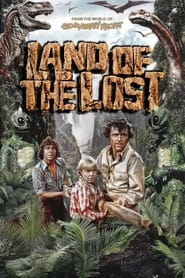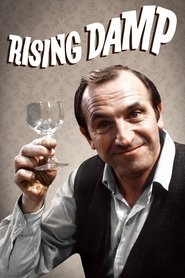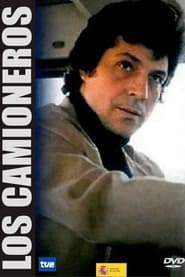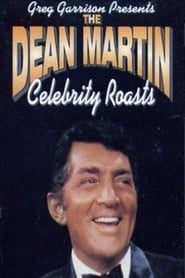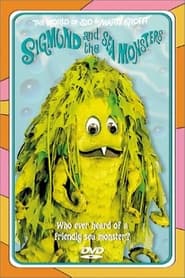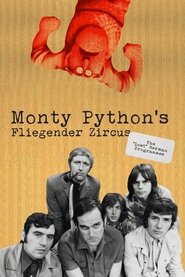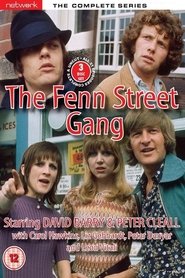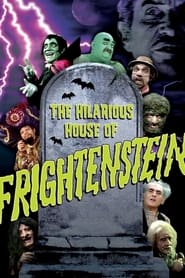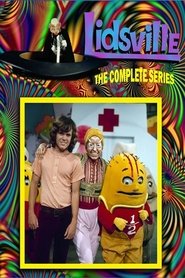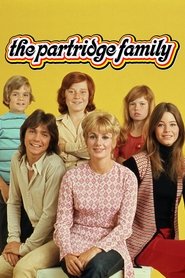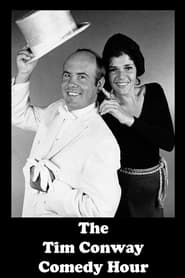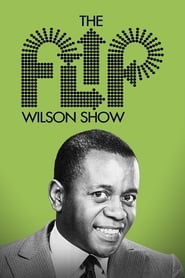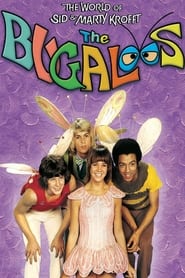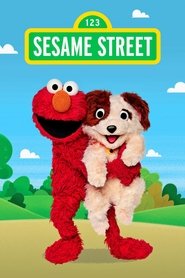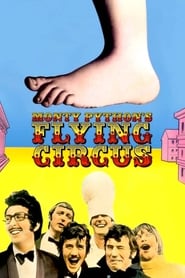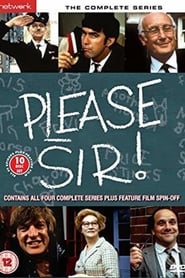New Comedy TV Series on The Roku Channel - Page 35
-
Far Out Space Nuts
1975
Far Out Space Nuts
1975
star 5Far Out Space Nuts is a Sid and Marty Krofft children's television series that aired in 1975 for one season, and produced 15 episodes. It was one of only two Krofft series produced exclusively for CBS. Like most children's television shows of the era, Far Out Space Nuts contained a laugh track. Like most of the Kroffts' productions, the show's opening sequence provides the setup of its fanciful premise: While loading food into various compartments to prepare a rocket for an upcoming mission, Barney instructs Junior to hit the "lunch" button, but Junior mistakenly hits the "launch" button. The rocket blasts off and takes them on various misadventures on alien planets. The show starred Bob Denver as Junior, a seemingly dim-witted but uniquely clever maintenance worker employed by NASA, and Chuck McCann as Barney, his grumpy, short-tempered co-worker. Patty Maloney played Honk, their furry friend who made horn sounds instead of speaking. -
Land of the Lost
1974
Land of the Lost
1974
star 7.1Rick Marshall and his children Will and Holly are on a weekend expedition rafting down a river when an enormous earthquake diverts them to an eclectic alien world inhabited by dinosaurs, chimpanzee-like cavemen called Pakuni, and aggressive, humanoid lizard creatures called Sleestak. -
Rising Damp
1974
Rising Damp
1974
star 7.5Set in a seedy bedsit, the cowardly landlord Rigsby has his conceits debunked by his long suffering tenants. -
Los camioneros
1973
-
The Dean Martin Celebrity Roasts
1973
star 5.4The Dean Martin Celebrity Roasts is a NBC television special show hosted by entertainer Dean Martin from 1974 to 1984. For a series of 54 specials and shows, Martin would periodically "roast" a celebrity. These roasts were patterned after the roasts held at the New York Friars' Club in New York City. The format would have the celebrity guest seated at a banquet table, and one by one the guest of honor was affectionately chided or insulted about his career by his fellow celebrity friends. In 1973, The Dean Martin Show was declining in popularity. The final season of his variety show would be retooled into one of celebrity roasts, requiring less of Martin's involvement. For the 1973–1974 season, a new feature called “Man of the Week Celebrity Roast" was added to try to pick up the ratings. The roasts seemed to be popular among television audiences and are often marketed in post-issues as part of the official Dean Martin Celebrity Roasts and not The Dean Martin Show. After The Dean Martin Show was cancell -
Sigmund and the Sea Monsters
1973
star 5.4Sigmund and the Sea Monsters was an American children's television series that ran from 1973 to 1975, produced by Sid and Marty Krofft and aired on Saturday mornings. There were 29 episodes spanning two seasons. -
Monty Python's Fliegender Zirkus
1972
star 7.3Monty Python's Fliegender Zirkus consisted of two 45-minute Monty Python German television comedy specials produced by WDR for West German television. The two episodes were first broadcast in January and December 1972 and were shot entirely on film and mostly on location in Bavaria, with the first episode recorded in German and the second recorded in English and then dubbed into German. -
The Fenn Street Gang
1971
The Fenn Street Gang
1971
star 5.3The Fenn Street Gang is a British television sitcom which ran for three seasons between 1971 and 1973. The series was created by John Esmonde and Bob Larbey, it was spun-off from their Please Sir! series. -
The Hilarious House of Frightenstein
1971
star 7.6The Hilarious House of Frightenstein, was a quirky Canadian sketch comedy TV series from the 1970s that included some genuine educational content among the humour. It featured the talented Billy Van, who played a variety of characters, Fishka Rais played the role of Igor, Guy Big brought Count Munchkinstein to life, and the legendary Vincent Price made special guest appearances as The Host who would start each episode with: “Another lovely day begins, for ghosts and ghouls with greenish skin. So close your eyes and you will find that you’ve arrived in Frightenstein. Perhaps the Count will find a way to make his monster work today. For if he solves this monster-mania, he can return to Transylvania! So welcome where the sun won’t shine, to the castle of Count Frightenstein!” -
Lidsville
1971
Lidsville
1971
star 5Lidsville is Sid and Marty Krofft's third television show following H.R. Pufnstuf and The Bugaloos. As did its predecessors, the series combined two types of characters: conventional actors in makeup filmed alongside performers in full mascot costumes, whose voices were dubbed in post-production. Seventeen episodes aired on Saturday mornings for two seasons, 1971–1973. The opening was shot at Six Flags Over Texas. -
Doctor at Large
1971
Doctor at Large
1971
star 4.3Doctor at Large is a British television comedy series based on a set of books by Richard Gordon about the misadventures of a group of newly qualified doctors. The series follows directly from its predecessor Doctor in the House, and was produced by London Weekend Television in 1971. Writers for the Doctor at Large episodes were Bill Oddie, Graeme Garden, John Cleese, Graham Chapman, Bernard McKenna, Geoff Rowley, Andy Baker, Jonathan Lynn and David Yallop, as well as George Layton. -
The Partridge Family
1970
The Partridge Family
1970
star 6.8The Partridge Family is an American television sitcom series about a widowed mother and her five children who embark on a music career. -
Make Room for Granddaddy
1970
star 5Make Room for Granddaddy is a sequel to the American TV series The Danny Thomas Show (also known as Make Room for Daddy). The series aired for one season on ABC between September 1970 and March 1971. -
The Flip Wilson Show
1970
The Flip Wilson Show
1970
star 4.6The Flip Wilson Show is an hour long variety show that aired in the U.S. on NBC from September 17, 1970 to June 27, 1974. The show starred American comedian Flip Wilson; the program was one of the first American television programs starring a black person in the title role to become highly successful with a white audience. Specifically, it was the first successful network variety series starring an African American. During its first two seasons, its Nielsen ratings made it the nation's second most watched show. The show consisted of many skits over an hour. It also broke new ground in American television by using a 'Theatre-in-the-Round' stage format, with the audience seated on all sides of a circular performance area. Wilson was most famous for creating the role of Geraldine Jones, a sassy, modern woman who had a boyfriend named Killer. Flip also created the role of Reverend Leroy, who was the minister of the Church of What's Happening Now!. New parishioners were wary of coming to the church as it was hinted th -
The Bugaloos
1970
The Bugaloos
1970
star 6The Bugaloos was an American children's television series, produced by brothers Sidney Krofft and Martin Krofft, that aired on NBC on Saturday mornings from 1970 to 1972. The show featured a musical group composed of four British-accented teenagers, who lived in fictional Tranquility Forest. They wore insect-themed outfits with antennae and wings which allowed them to fly, though on occasion, they were shown flying on surfboards. They were constantly beset by the evil machinations of Benita Bizarre, played by comedienne Martha Raye. Bizarre, being untalented and ugly herself, was covetous of the Bugaloos' musical prowess. -
Sesame Street
1969
Sesame Street
1969
star 7.1On a special inner city street, the inhabitants—human and muppet—teach preschoolers basic educational and social concepts using comedy, cartoons, games, and songs. -
Monty Python's Flying Circus
1969
star 8.3A British sketch comedy series with the shows being composed of surreality, risqué or innuendo-laden humour, sight gags and observational sketches without punchlines. -
Please Sir!
1968
Please Sir!
1968
star 6.8A hapless but caring teacher tries to control his class of unruly kids. The teacher sees much good and potential in his pupils, much to the dismay of his fellow teachers who have lost hope in these kids. -
The Carol Burnett Show - The Lost Episodes
1968
"The Lost Episodes" is a collection of episodes that weren't ready for release. Time Life has brought them back for all to enjoy again. This series includes the debuts of long-running sketches like "As the Stomach Turns," "Carol and Sis," and "The Old Folks." And who can forget Tim Conway's first appearance on the show as the Oldest Man. Guests include Lucy, Bing, Phyllis, and Flip.
 Netflix
Netflix
 Amazon Prime Video
Amazon Prime Video
 Apple iTunes
Apple iTunes
 Apple TV Plus
Apple TV Plus
 Disney Plus
Disney Plus
 Google Play Movies
Google Play Movies
 Paramount Plus
Paramount Plus
 Hulu
Hulu
 HBO Max
HBO Max
 YouTube
YouTube
 fuboTV
fuboTV
 Peacock
Peacock
 Peacock Premium
Peacock Premium
 Amazon Video
Amazon Video
 The Roku Channel
The Roku Channel
 AMC+
AMC+
 Kocowa
Kocowa
 Hoopla
Hoopla
 The CW
The CW
 Vudu
Vudu
 Starz
Starz
 Showtime
Showtime
 PBS
PBS
 Pantaflix
Pantaflix
 FXNow
FXNow
 Tubi TV
Tubi TV
 Kanopy
Kanopy
 Comedy Central
Comedy Central
 Crunchyroll
Crunchyroll
 Microsoft Store
Microsoft Store
 Redbox
Redbox
 Sun Nxt
Sun Nxt
 ABC
ABC
 DIRECTV
DIRECTV
 Crackle
Crackle
 Fandor
Fandor
 Plex
Plex

